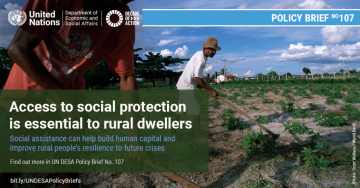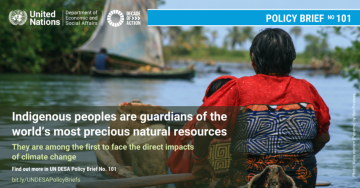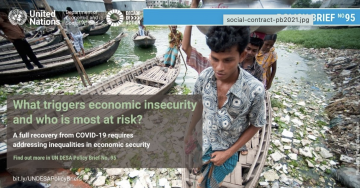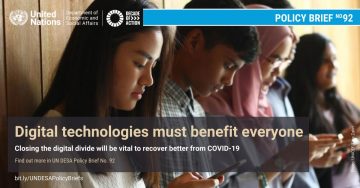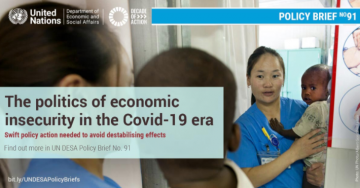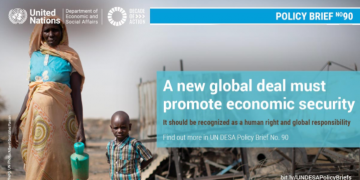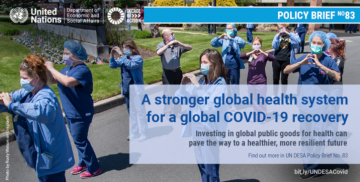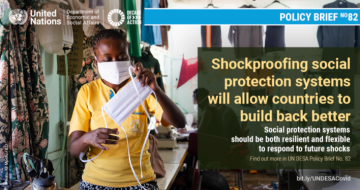Publications
Displaying 11 - 20 of 26
Policy Briefs |
Introduction
Even though rural poverty has declined rapidly in recent decades, poverty remains primarily a rural phenomenon and the poorest in rural areas are at risk of being left behind. The World Social Report 2021 (United Nations, 2021) finds that successes in poverty reduction have not always led to lower rural inequalities or to a closing of the rural-urban divide. Indeed, disparities in access to basic services and opportunities continue to exist within rural areas and between rural and urban areas, and can be persistently high for specific population groups, such as indigenous peoples and women. The COVID-19 pandemic has further exacerbated the precarious situation of the rural poor…
Policy Briefs |
Threats to indigenous peoples’ livelihoods and traditional knowledge
Climate change is the greatest challenge facing humanity today. Its effects, however, are disproportionately distributed, in particular affecting vulnerable and socially marginalized population groups. Indigenous peoples are among the first to face the direct impacts of global warming on the ecosystems or landscapes they inhabit, owing also to their dependence upon, and close relationship with the environment and its resources. Examples of the negative impacts include diseases associated with increasing temperatures such as, vector-borne and water-borne diseases; drought and desertification leading to forest fires and the…
Policy Briefs |
Introduction
With the onset of the COVID-19 pandemic, many have found themselves and their families on shaky economic ground. There are significant inequalities in the degree to which different people have faced exposure, vulnerabilities and the capacity to respond to COVID-19- related shocks, due in part to substantial differences in their experience of economic risk. Such preexisting inequalities have highlighted the extent to which large-scale crises have an uneven impact on the economic security of households and individuals.
Inequalities in education, health and employment result in some groups being more economically insecure than others. Evidence from the United States and Europe,…
Policy Briefs |
The COVID-19 pandemic and the measures needed to contain its spread have had a devastating impact on the world of work. According to ILO’s latest estimates, the crisis resulted in an unprecedented global loss of 8.8 per cent of working hours, equivalent to 255 million full-time jobs, in 2020 (ILO, 2021). While some workers joined the ranks of the unemployed and are still seeking work, many more have left the labour force altogether. Women, youth and workers in low-skilled jobs, often in the informal economy, have been hit harder than other groups. The longer the distress in labour markets persists, the more the affected workers, their families and their communities run the risk of being…
Policy Briefs |
Measured by the usual metrics of cases and deaths, Africa’s experience of the COVID-19 pandemic seems mild, but the social and economic impacts of the crisis have hit hard. Across the continent, an estimated equivalent of 60 million full-time jobs were lost in the second quarter of 2020 and up to an additional 40 million people were pushed into extreme poverty by the end of 2020.
“The United Nations, and I personally, stand in total solidarity with the people and governments of Africa, and with the African Union, in tackling COVID-19,” said UN Secretary-General António Guterres. “Global solidarity with Africa is an imperative – now, and for recovering better.”
In its newly released policy…
Policy Briefs |
COVID-19 is accelerating the pace of digital transformation: implications for social inclusion
Successive lockdowns and confinement measures put in place by governments to curb the spread of COVID-19 are accelerating the pace of digital transformation as information and communications technology (ICTs) are used to sustain daily lives and support business continuity. Recent forecasts expect the number of employees working remotely globally is set to double in 2021 (Chavez-Dreyfuss, 2020). Internet traffic has surged, as individuals are increasingly moving online to work, communicate, socialise, consume and seek entertainment (OECD, 2020). Companies and industries have also been adapting to…
Policy Briefs |
The COVID-19 crisis has served as a reminder of the extent of economic insecurity, even in countries and among groups that previously considered themselves secure. This is likely to have profound consequences, threatening countries’ ability to achieve the 2030 Agenda for Sustainable Development and its SDGs.
Policy Briefs |
Fears related to economic insecurity are on the rise. Changes in the world of work, together with globalization and technological breakthroughs, have benefited many people but are also putting many others at disadvantage or at risk. These long-standing trends, which have raised aspirations but also fears, are compounded by evolving threats, including those brought about by climate change and the COVID-19 pandemic.
Policy Briefs |
Amidst deliberations on priority areas for rebuilding, much attention has been paid to the need to strengthen domestic health care, and such proposals will certainly be high on the agenda for many Governments. The crisis, however, has also shone a spotlight on the shortcomings of the global health system.
Policy Briefs |
Risks of implementing more shock responsive social protection include overwhelming demand, lack of coordination, poor targeting and negative public perception. These can be partially offset by ensuring universal access to programmes. A country’s available fiscal space and level of debt distress are key contextual factors that determine the feasibility of more shock-responsive social protection.
 Welcome to the United Nations
Welcome to the United Nations
